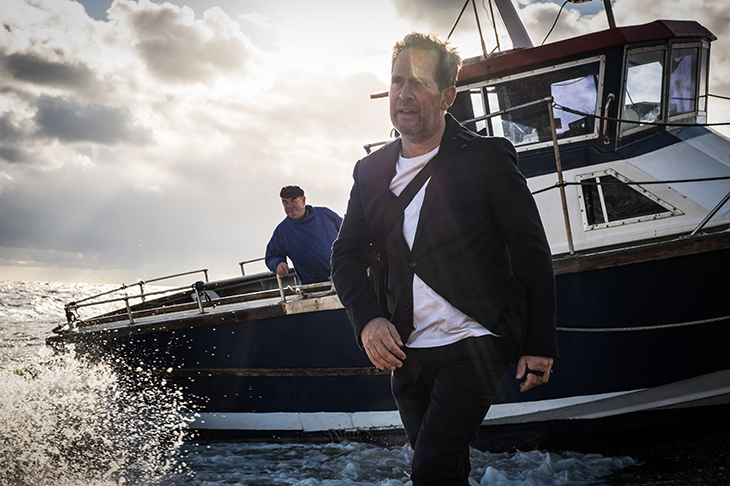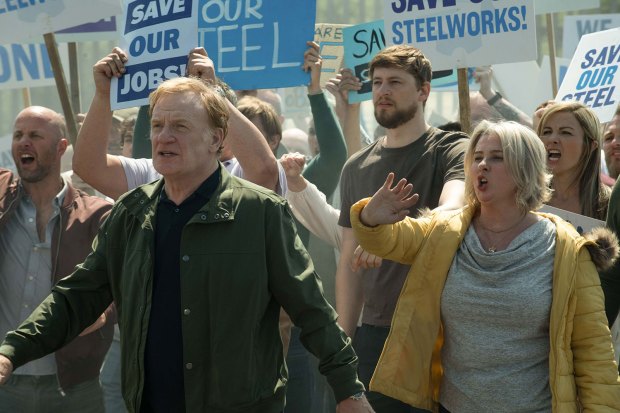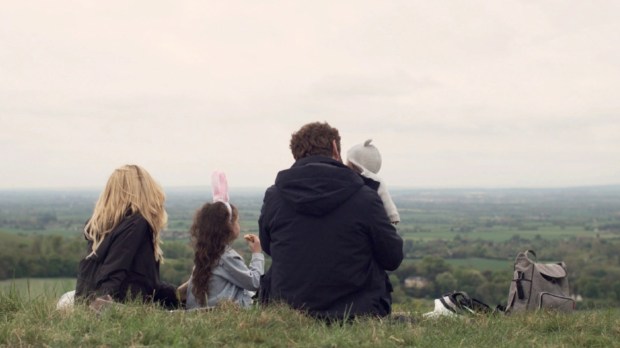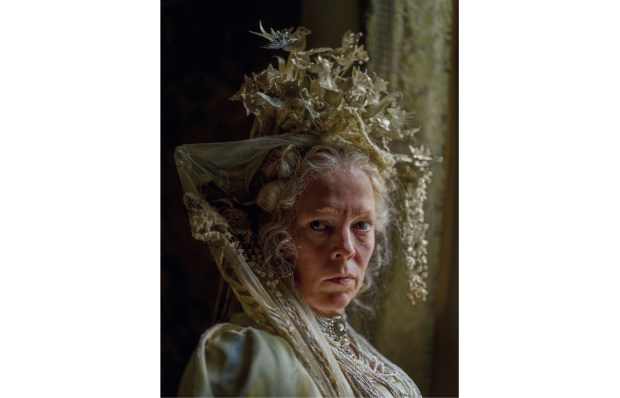What’s the best way to start a six-part thriller? The answer, it seems, is to have a bloke of a certain age pottering about at home when he’s suddenly and shockingly murdered by asphyxiation. You then roll the opening credits, forget about the dead guy and introduce the main character, who’s asked to take part in some sort of mission — and agonises about whether to accept or to leave the whole series somewhat stranded. At least, this is exactly what happened in both of this week’s big new Sunday-night dramas: BBC1’s Baptiste and Channel 4’s Traitors.
In Baptiste, the pre-credits murder was of an apparently harmless shell-collector in Deal — and the main character is, of course, Julien Baptiste (Tchéky Karyo), the ageing French detective whose endless Gallic wisdom proved so popular in The Missing that he’s now been given his own series. When we met Baptiste on Sunday, he’d recently retired to Amsterdam to spend more time delivering his little aphorisms with his family. (‘Intelligence without ambition,’ he informed his son-in-law, ‘is a bird without its wings.’) He was also keen to tell anyone who’d listen that ‘I’m not the man I was’ — although he seemed pretty much the same to me: still given to staring thoughtfully a lot and, at moments of particularly high tension, removing his specs.
Naturally, his retirement didn’t last long. As luck would have it, the Amsterdam police commissioner is an old flame, and when she heard of the mysterious disappearance of a young sex worker, she soon snapped into action by asking him to help, leaving him to do all the work and withdrawing to her office with a hipflask. Fortunately, Baptiste did have one useful contact: the missing girl’s uncle Edward (Tom Hollander), who’d come from Britain to find her.
Faced with the full blast of Baptiste’s kindly bedside manner, Edward didn’t take long to explain that his niece, Natalie, had turned to prostitution to fund her heroin habit. (‘My daughter believed she was taking drugs,’ murmured Baptiste empathetically, ‘but they were taking her.’) Gradually, it emerged that she’d fled to Germany to escape a bad man called Dragomir Zelincu — who might or might not have been the bearded Romanian responsible for the opening murder or the sex-trafficker we kept glimpsing in a roomful of terrified women.
Except that, like The Missing, Baptiste is written by Harry and Jack Williams, who specialise not so much in plot twists as in regularly dismantling almost everything we thought we knew. And so they did again here. By the end, it turned out that Natalie hasn’t fled to Germany and isn’t English; that Dragomir Zelincu is no longer either bad or a man, having changed both gender and moral outlook to become a female goodie; and that Edward isn’t Natalie’s uncle. Moreover, his fridge back in Britain appears to contain the severed head of the Deal shell-collector…
There’s no denying that much of this narrative trickery felt contrived. Happily, though, it also felt very well contrived. At this stage, it’s impossible to know what on earth will happen in episode two — but my guess is that most people who watched on Sunday will be desperate to find out.
Meanwhile, over on Channel 4, the pre-credits murder was of a British civil servant in 1945 — and the main character is Feef Symonds (Emma Appleton), a young woman from a prominent Tory family, who was training to be an SOE agent when, much to her annoyance, the war was inconsiderate enough to end. So what would she do with her sense of adventure now that she was dispatched to the Ministry of Housing to swot up on fungal decay?
In the event, she didn’t have to wait long. With the cold war already taking shape, one American spy officer believes the Brits don’t realise the extent of the communist threat — otherwise why would they have just elected a socialist government? As a result he wants Feef to spy on any commies who might have infiltrated the civil service. (And merely because he’s paranoid doesn’t mean he’s wrong.)
At this stage, in fact, it’s this political background that’s the most gripping aspect of the programme. Bash Doran’s thoughtful script reminds us that the end of a war can be as cataclysmic as the outbreak of one. It also shows us how overwhelmingly shocking Labour’s 1945 victory was to people like Feef and her family. And, while Doran doesn’t overdo the contemporary parallels, we’re clearly invited to ponder the implications when the British electorate makes a decision that leaves the old order aghast. (For a start, the word ‘traitors’ becomes a highly ambiguous one.)
So far, this does, I suppose, make Traitors less of a heart-pounding thriller than a chin-stroking one — but, so far too, it’s none the worse for that.
Got something to add? Join the discussion and comment below.
Get 10 issues for just $10
Subscribe to The Spectator Australia today for the next 10 magazine issues, plus full online access, for just $10.
You might disagree with half of it, but you’ll enjoy reading all of it. Try your first month for free, then just $2 a week for the remainder of your first year.














Comments
Don't miss out
Join the conversation with other Spectator Australia readers. Subscribe to leave a comment.
SUBSCRIBEAlready a subscriber? Log in